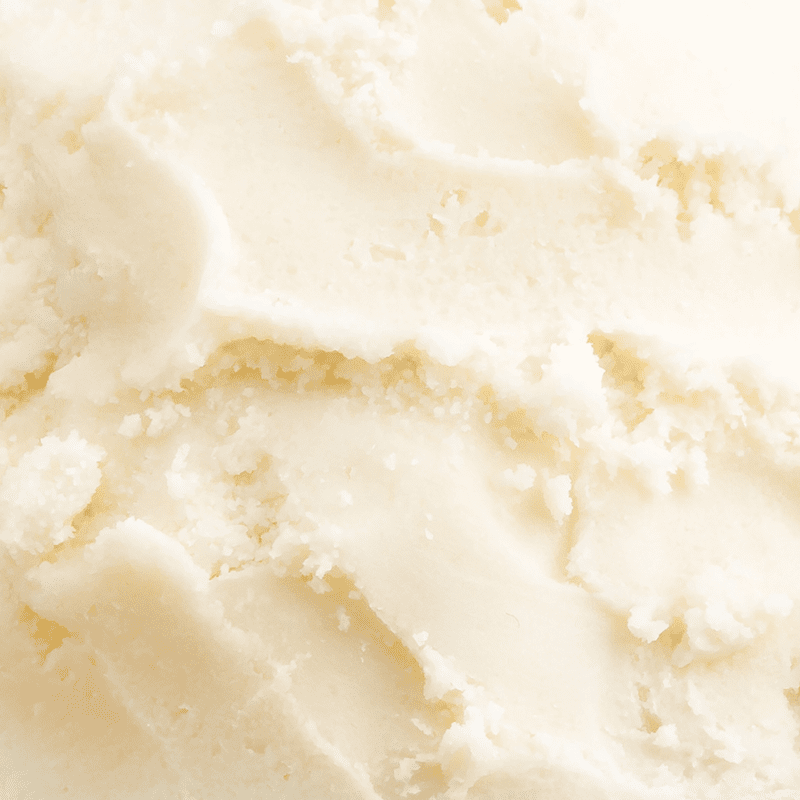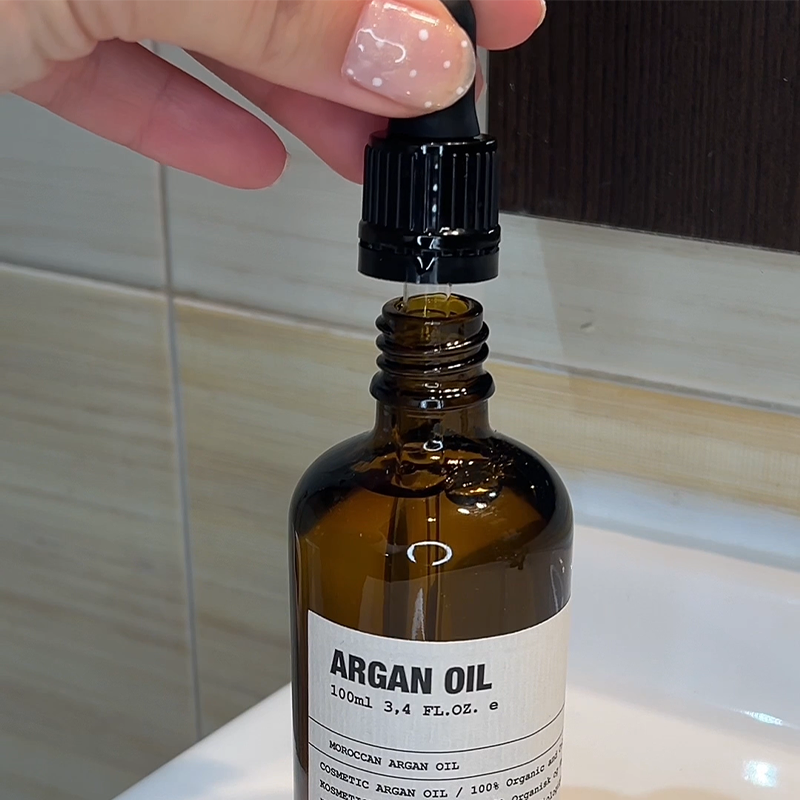Treating Eczema Naturally - Effective Solutions
Eczema can significantly impact your daily life. The itching, redness and irritation can affect not just your skin, but also your emotional wellbeing. Fortunately, there are natural ways to treat eczema that are both effective and gentle on your body and the environment. In this article, we'll explore a range of natural solutions to help relieve eczema symptoms. From herbal remedies to dietary adjustments, we'll examine the best strategies. Learn how to care for your skin in a gentle yet powerful way and regain comfort in your own skin. Discover nature's power and stop letting eczema control you - take charge of your skin health instead. Get inspired by effective, natural solutions that can improve your life and soothe your skin.
What is eczema and how does it develop?
Eczema, also known as dermatitis, is a chronic skin condition characterized by inflammation, itching and redness. It's a common disorder that can affect both children and adults. The exact cause of eczema is unknown, but it's believed to be a combination of genetic, environmental and immune factors. People with eczema often have an overactive immune system that overreacts to certain triggers like allergens, irritants or stress.
Eczema can manifest in different ways depending on severity and type. Atopic eczema is the most common form and is often associated with other allergic conditions like asthma and hay fever. Contact eczema occurs when skin comes into direct contact with an irritant or allergen, while seborrheic eczema commonly appears on the scalp and face, characterized by scaly patches.
The development of eczema can also be influenced by environmental factors like weather conditions, humidity and exposure to certain chemicals. Stress and emotional factors also play a significant role in worsening eczema symptoms. Understanding these factors can help identify triggers and develop effective treatment strategies.
Symptoms of eczema
The symptoms of eczema can range from mild to severe and may vary from person to person. The most common symptoms include dryness, redness, itching, and skin inflammation. In severe cases, blisters, crusting, and skin cracking may occur, potentially leading to secondary infections. The itching can be so intense that scratching becomes unavoidable, which may further damage the skin and slow the healing process.
Eczema can appear on any part of the body but frequently occurs on the hands, feet, face, neck, and skin folds such as the elbows and knees. In children, eczema often appears on the cheeks, scalp, and torso. Symptoms may change over time and can periodically flare up and subside, known as exacerbations and remissions.
Beyond physical symptoms, eczema can significantly impact quality of life. Constant itching and discomfort may lead to sleep disturbances, reduced concentration, and emotional stress. It's important to take a holistic approach to eczema treatment, addressing both the physical and emotional aspects of the condition.
The role of nutrition in eczema
Nutrition plays a crucial role in managing eczema. Certain foods can worsen eczema symptoms, while others may help reduce inflammation and promote healthy skin. Following a balanced diet rich in vitamins, minerals, and antioxidants can contribute to improved overall skin health and reduced eczema flare-ups.
Foods high in omega-3 fatty acids, such as fatty fish, flaxseeds, and walnuts, have anti-inflammatory properties that may help alleviate eczema symptoms. Additionally, probiotic-rich foods like yogurt and fermented vegetables can improve gut health and strengthen the immune system, which may help manage eczema.
It's also important to be mindful of foods that may exacerbate eczema. Foods high in sugar, refined carbohydrates, and trans fats can promote inflammation in the body and worsen eczema symptoms. Undergoing food allergy testing or following an elimination diet may be helpful to identify and avoid potential triggers.
Natural remedies for eczema
Various natural remedies can be effective in treating eczema. One of the most popular natural treatments is coconut oil, known for its moisturizing and anti-inflammatory properties. Coconut oil can be applied directly to affected skin to reduce dryness and itching.
Aloe vera is another natural remedy commonly used for eczema treatment. The gel from the aloe vera plant has soothing and healing properties that can help reduce inflammation and promote skin recovery. Regular application of aloe vera gel to affected areas can provide relief from eczema symptoms.
Herbs like chamomile and calendula also possess anti-inflammatory and soothing properties that may be beneficial for eczema treatment. Teas or oils made from these herbs can be applied topically or used as compresses to calm the skin and reduce irritation. While natural remedies can be effective, it's always advisable to consult a doctor before trying new treatments.
The Importance of Hydration for Eczema
Hydration is essential for maintaining healthy skin, especially for those with eczema. Well-hydrated skin is less prone to irritation and functions more effectively as a protective barrier. Regular hydration with products like Nilotica Shea Butter or Prickly Pear Oil can reduce dryness, itching, and inflammation while promoting skin recovery.
Follow a daily routine with sensitive-skin products such as African Black Soap, which combats bacteria and soothes eczema. Apply these to damp skin post-shower for optimal moisture retention.
Internal hydration matters too. Drink ample water and eat hydrating foods. For added benefits, Black Seed Oil offers anti-inflammatory support.
Stress and eczema: the connection
Stress plays a significant role in worsening eczema symptoms. When the body is under stress, it produces stress hormones like cortisol that can promote inflammation and affect immune response. This may lead to increased eczema flare-ups and worsening of existing symptoms.
It's important to integrate effective stress management techniques into your daily routine to help control eczema symptoms. Techniques such as meditation, deep breathing exercises, and mindfulness can help reduce stress levels and improve overall well-being. Regular physical exercise is also an excellent way to reduce stress and promote skin health.
Additionally, building a support system of friends, family, or support groups can be beneficial. Sharing experiences and receiving emotional support can help reduce the stress associated with eczema. Remember that managing stress is an ongoing process, and finding the right techniques and support is crucial for improving skin health.
When to see a doctor?
While natural remedies and home treatments can be effective for managing mild eczema symptoms, it's important to seek medical help when symptoms are severe or don't improve with self-care measures. A dermatologist can provide a proper diagnosis and develop an individualized treatment plan to help manage eczema.
Signs it's time to see a doctor include persistent redness, swelling, pain, blisters or crusting that doesn't heal. If itching is so severe it disrupts daily activities or sleep, medical attention is also important. Additionally, if you suspect a secondary infection (such as pus, fever or warm skin), it's crucial to consult a doctor immediately.
A doctor may recommend various treatment options including topical corticosteroids, immunomodulators or phototherapy. Being open and honest with your doctor about your symptoms and eczema's impact on your life ensures you receive an effective, personalized treatment plan.
Preventive measures against eczema
Taking preventive measures can help reduce the risk of eczema flare-ups and manage existing symptoms. Avoiding known triggers and irritants is one of the most important steps. This may include avoiding certain foods, harsh cleaning products, synthetic fabrics, and extreme weather conditions.
Maintaining a consistent skincare routine focused on hydration and skin protection is also crucial. Regular moisturizing with products like Nilotica Shea Butter, using mild, fragrance-free cleansers such as African Black Soap, and avoiding excessively hot water can help strengthen the skin barrier and prevent dehydration. Wearing breathable, natural fabrics like cotton can also help reduce skin irritation.
Additionally, monitoring your diet and lifestyle can help prevent eczema outbreaks. Eating a balanced diet rich in antioxidants and anti-inflammatory foods can improve skin health. Incorporating stress management techniques and ensuring adequate rest and sleep are also important factors in managing eczema.
Conclusion and future-oriented approaches
Eczema can be a challenging and often frustrating condition, but with the right approach and care, symptoms can be effectively managed. Exploring natural remedies and home treatments offers a wide range of options for relieving eczema symptoms without the side effects often associated with conventional treatments. It's important to remember that everyone responds differently to therapies, so it may take time to find the right combination of remedies that work for you.
The future of eczema treatment lies in a holistic approach that addresses both the physical and emotional aspects of the condition. Research into the role of diet, stress and environmental factors continues to provide new insights that can help develop more effective treatment strategies. By being proactive in identifying and avoiding triggers, and by maintaining a healthy lifestyle and skincare routine, people with eczema can gain more control over their condition and experience a better quality of life.
It's also encouraging to see new treatments and therapies being continuously developed that focus on improving skin health and reducing eczema symptoms. From innovative topical treatments to advanced immunotherapies, advances in medical science offer hope for those struggling with eczema. By staying informed about the latest developments and working with healthcare professionals, people with eczema can receive the best possible care and support.



